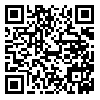

BibTeX | RIS | EndNote | Medlars | ProCite | Reference Manager | RefWorks
Send citation to:
URL: http://jdisabilstud.org/article-1-1652-en.html
2- Professor, Faculty of Psychology and Educational Sciences, Allameh Tabatabai University, Tehran, Iran
3- Assistant Professor, Department of Psychology, Islamic Azad University, Shahroud Branch, Shahroud, Iran
Abstract
Background & Objectives: It is reported that Attention–Deficit Hyperactivity Disorder (ADHD) continues until adulthood in 50% to 60% of children diagnosed with the disorder. The prevalence of ADHD in adults has been estimated to be around 4%. Adults with ADHD are more likely to develop comorbid psychiatric conditions like anxiety, mood, and substance use disorders. In addition, a high prevalence of antisocial personality disorder has also been observed in this population. Research has shown that cognitive–behavioral therapy is effective in reducing the symptoms of inattention and dysfunction in adults with ADHD. Therefore, this study aimed to evaluate the impact of positive cognitive behavioral training on depression and anxiety symptoms in adult deficit/hyperactivity disorder.
Methods: In this quasi–experimental study, we used a pretest–posttest design with experimental and control groups. The statistical population of this study comprised all students of Damghan University in 2018 who participated in the student mental health monitoring project and aged from 20 to 30 years. Participants were selected using the available sampling method. Also, the experimental group received a positive cognitive behavioral training intervention, and the control group was placed on the waiting list. At the end of the study, a training course was held for the control group. The sample size was determined as 15 per group by G*Power software. Accordingly, 30 students were selected from the students who met the admission criteria. The inclusion criteria included being a student aged 20–30 years and having above–average scores in the Conners' Adult ADHD Rating Scales (Conners et al., 1999). The exclusion criterion included absence for more than three sessions from the intervention. Both groups in the pretest and posttest responded to Beck Anxiety Inventory (Beck et al., 1988) and Beck Depression Inventory (Beck et al., 1961). The experimental group underwent positive cognitive behavioral training by the researcher for 12 sessions of 50 minutes based on the Principles of Positive Cognitive–Behavioral Therapy Susan Quilliam (2011). To analyze the research data, descriptive statistics (mean and standard deviation) and inferential statistics, including multivariate analysis of covariance and univariate analysis of covariance tests, were used with the help of SPSS version 24 software. The significance level of the tests was 0.05.
Results: The findings showed that the effect of cognitive–behavioral positive–program training on depression (p<0.001) and its subscales of emotional symptoms (p<0.001), cognitive symptoms (p<0.001), and physical symptoms (p<0.001) and anxiety symptoms (p<0.001) were significant. Eta squared also showed that cognitive–behavioral therapy had a positive effect of 80% on the total score of anxiety and 74% on the total score of depression.
Conclusion: Positive cognitive behavioral training reduces depression and anxiety symptoms of adults with ADHS. Therefore, counselors and psychotherapists can use the findings of this research to reduce the symptoms of depression and anxiety and the resulting psychological problems.
| Rights and permissions | |
 |
This work is licensed under a Creative Commons Attribution-NonCommercial 4.0 International License. |




